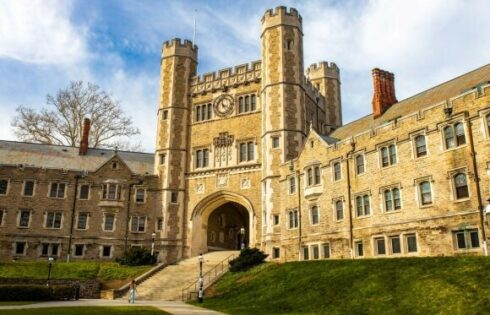
A new study from the Texas Public Policy Foundation found that a majority of law schools fail to provide a positive return-on-investment to students.
The conservative think-tank applied the Gainful Employment Equivalent test to 168 law schools. The test “compares the earnings of recent graduates with the typical borrower’s student loan debt to determine if students can afford their student loan payments.”
The Obama administration used the formula to determine if for-profit colleges should be shut off from federal financial aid.
The researchers used “the median earnings for students that graduated in 2014-15 and 2015-16 one year after graduation” and acknowledged that more data would help strengthen the research.
“A shocking 122 (73%) law school programs fail GEE,” the report said. “Thus, almost three quarters of law school programs leave their typical student borrower with debt so high relative to their post-graduation earnings that they are unlikely to be able to afford to make their student loan payments,” the foundation said.
“Students should think twice about enrolling in one of these failing programs, and policymakers should stop providing taxpayer subsidies for them,” the report said.
At least one higher education analyst believes that this information will lead to a shuttering of more law schools.
George Leef, writing at the James G. Martin Center for Academic Renewal, said:
What is going to happen once college students hear about these results, results that loudly confirm their apprehensions about going to law school? Except for the small percentage of schools that are in the ‘pass’ or ‘probation’ categories, enrollments will probably plunge, and the list of defunct schools will increase steadily.
The root of the problem is that law school costs substantially more than most students can afford to finance on their expected earnings after graduation. So why don’t school administrators find ways to reduce that cost? They can and many have nibbled at the edges, for example using somewhat more adjunct faculty and cutting back on library expenses.
Leef criticized rules from the American Bar Association which prolong law school, and thus make it more expensive. He said:
The big problem is that under American Bar Association (ABA) accreditation rules, law school has to be a three-year program—90 credits. A law school could lower the cost of getting a degree tremendously if it could allow students to graduate with, say, 60 credits. It would focus on the courses that are most important for the bar exam and subsequent legal practice. Many students would find that prospect attractive.
The ramifications of the ABA monopoly have direct implications for the ability of low-income people to access justice.
“The very high cost of law school is no problem for those graduates who find high-paying jobs, but most of America’s legal needs don’t come from wealthy people and big business,” Leef said.
“They come from ordinary people who are poor or middle-class. But they don’t have the means to pay lawyers hefty fees to handle their cases, and that often means that they have to go without an attorney,” Leef said.
Read the Texas Public Policy Foundation report and the Martin Center commentary.
IMAGE: Pathdoc/Shutterstock
Like The College Fix on Facebook / Follow us on Twitter




Add to the Discussion